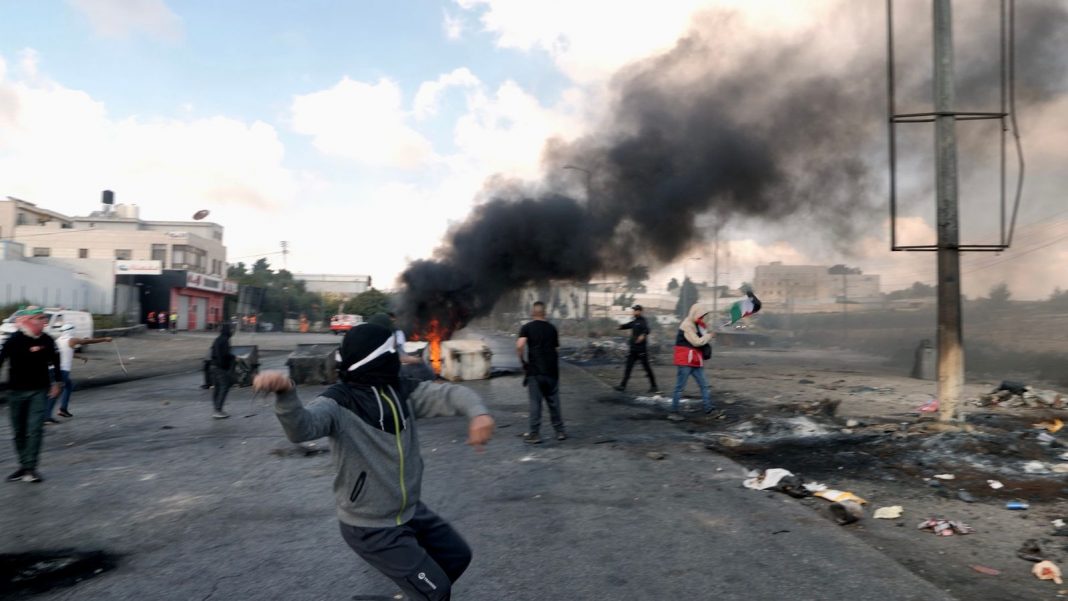We filmed as a small group of teenagers whirling slings above their heads lobbed stones at an Israeli military vehicle 100m or so up the road on the outskirts of the West Bank city of Ramallah.
They’re taunting members of the Israel Defence Forces (IDF) stationed at their main military communications hub.
Above them snipers wait and watch.
You only need to pay a cursory look at the blackened tarmac of the roads and the scorch marks of fires on the nearby border wall with Israel to understand that this is a scene considered ‘normal’ in this part of the world – it happens all the time.
Israel-Gaza latest: Protests spread around Middle East
What is worth thinking about though is that in the relatively short time we filmed, four of the stone throwers were shot by Israeli snipers perched on a hill nearby.
Not with tear gas or baton rounds, but with bullets.
They were throwing stones.
A boy slings a stone amid the protests
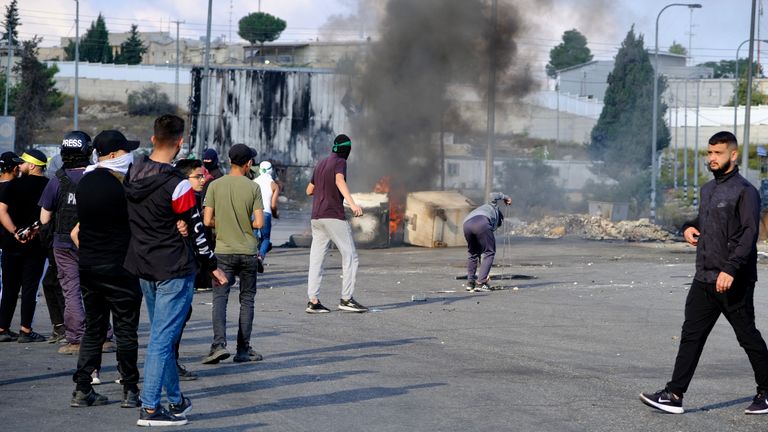
In the West Bank in the past week and a half alone, over 60 people have been shot dead by Israeli marksmen, and more than 1,300 have been wounded; it’s barely reported.
In a way, that’s what is the most shocking point to remember, and I think it’s indicative of how such casual acceptance of what is an incident that would lead news bulletins and front pages of newspapers all over the world, has become just part of life here.
Violence dominates everything.
The West Bank is seething after the Gaza hospital disaster, and there is now three days of mourning and a general strike here after a terrible week and a half in this troubled region.
Please use Chrome browser for a more accessible video player
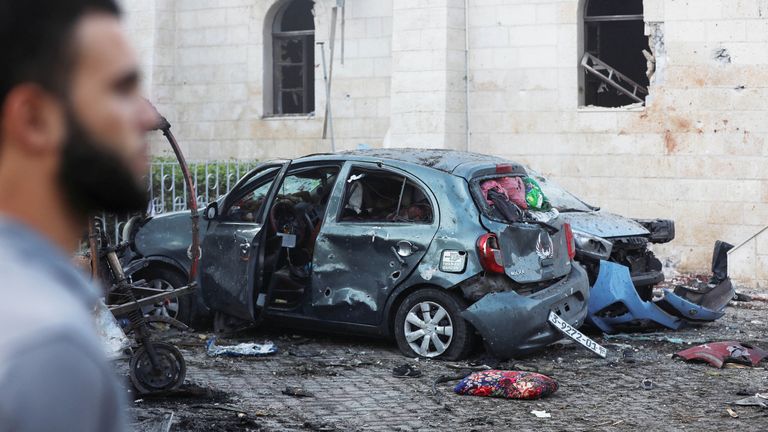
1:14
IDF release hospital attack audio
Protesters unite in condemnation
It’s been relatively quiet on the streets since the Hamas attack in southern Israel, but today Hamas wanted people to come out.
The centre of Ramallah was brought to a standstill by relatively modest crowds demonstrating against events in Gaza.
Men, women, children – they all turned out to show their support.
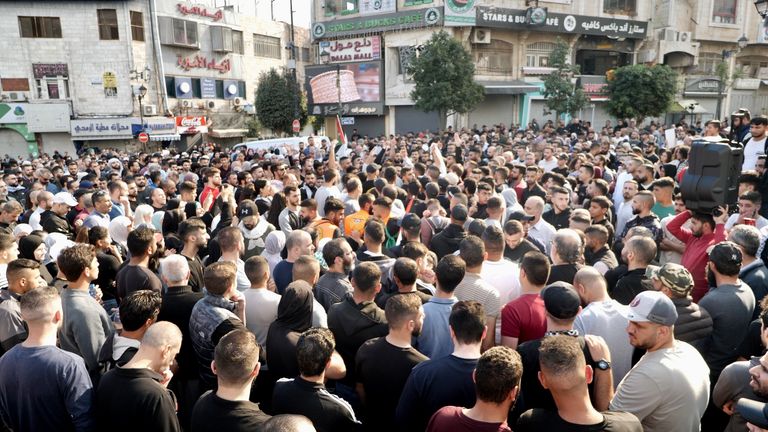
Crowds including women and children turned up for the peaceful protest
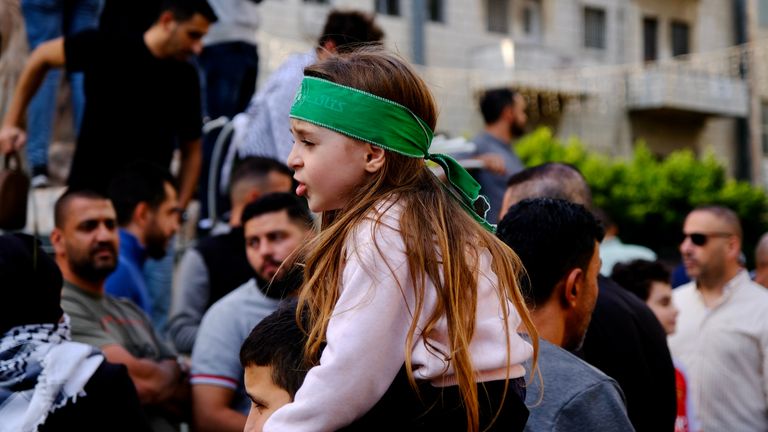
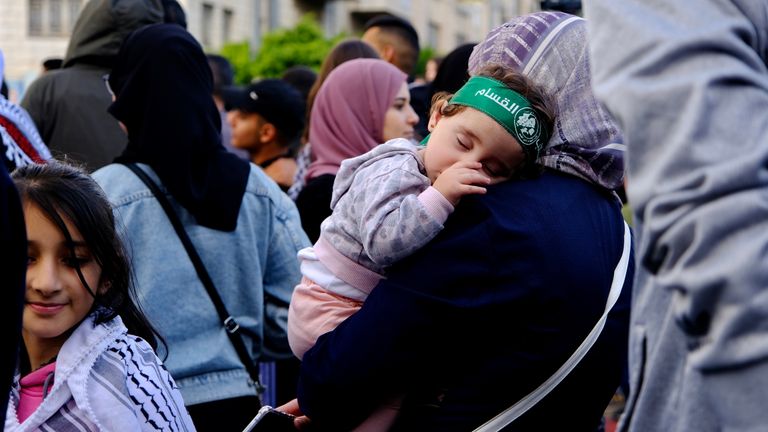
“We see the kids being bombed, we see the old people being bombed, we see the civilians right now they are doing nothing but looking to feed their kids, looking to make their kids safe right now, they’re being bombed in their houses while they’re sleeping,” one protester, Loai, replied when I asked why he was there.
The crowd chanted and then paused for prayers for the people of Gaza – led by Hassan Yousef.
Hassan Yousef is a senior Hamas leader. Be under no doubt, his presence will be noted by Israel.
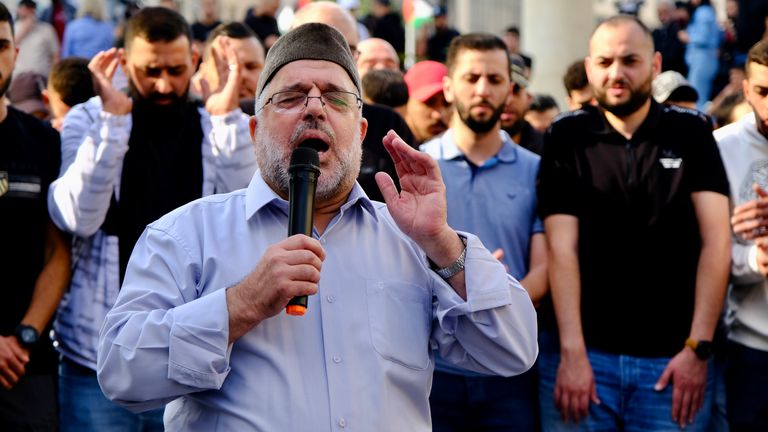
Hassan Yousef is one of Hamas’s senior leaders
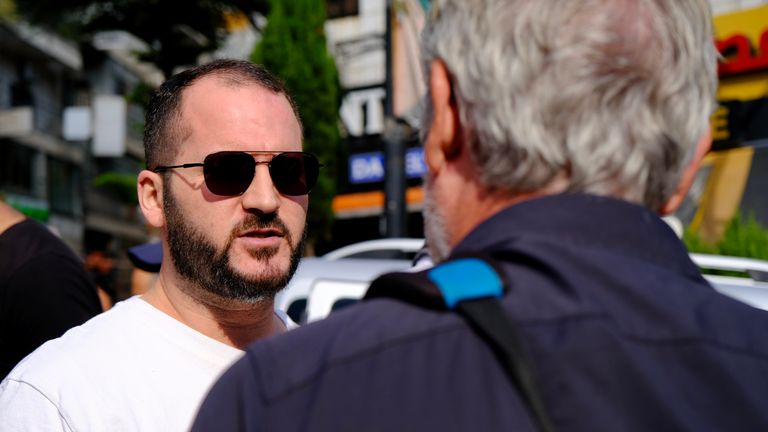
‘We see the kids being bombed’, Loai says
The people who gathered may have varying and different views on the future for Palestinians, but for now they are united in condemnation.
Deema, a young Palestinian who joined the protest, feels it’s time they fight for themselves.
“I think it’s our time in the West Bank to actually stand against this apartheid, to do something about it. What’s happening today is part of a struggle that has been going on for 75 years,” she told me.
She continued: “And this should be a continuous movement, I think this is up to the people of Palestine to solve, I don’t think we should look for international solutions because this has not worked in the past, so it’s up to us Palestinians to stand up and be, like, this is not right.”
Please use Chrome browser for a more accessible video player
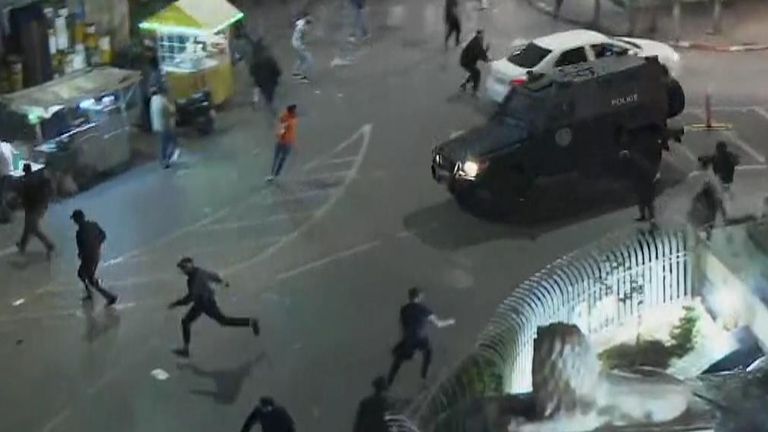
1:18
Police car in West Bank drives at protesters
Read more:
Families speak of fear after children taken hostage
Survivors tell how Hamas targeted Supernova festival
‘Every people dying’
Another woman, an American-Arab, told me she couldn’t get home because of the escalation here, and that she’s fed up with all the killing.
“Every one minute, every people dying, it’s enough,” she said.
I asked her if she meant from both sides.
“Yes, Arabic, Gaza, Jewish, it’s enough, it’s the same – kill here and kill [there] – it’s enough!”
I wondered if she ever thinks it will end.
“Maybe, inshallah, I wish they stop the war, I wish…”
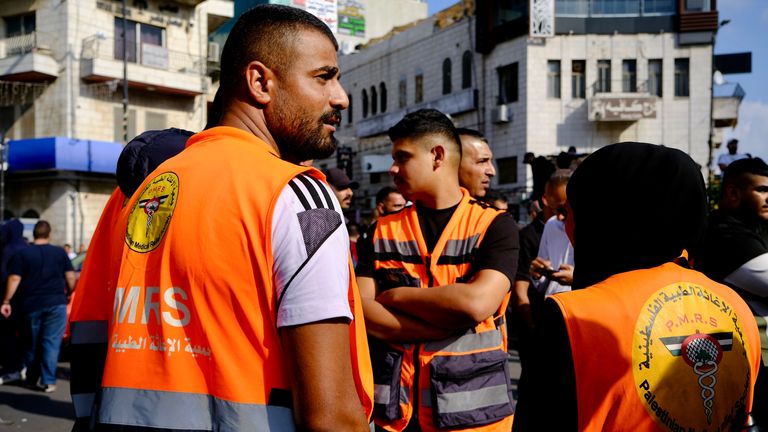
Medics were present at the protest
The international community’s diplomats are working around the clock to try to stop this volatile situation from exploding into a regional war.
On the streets they’re waiting to see what happens.


